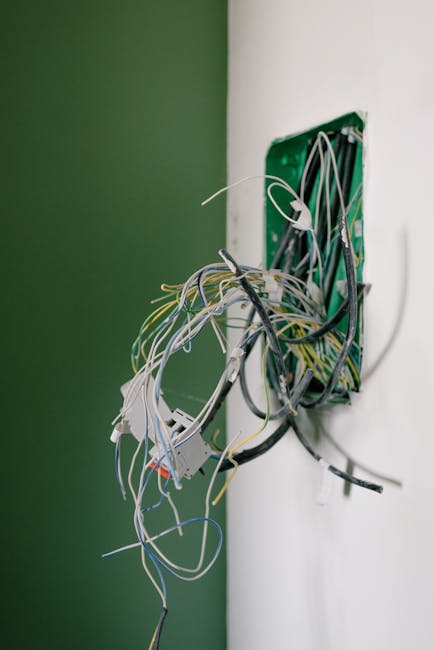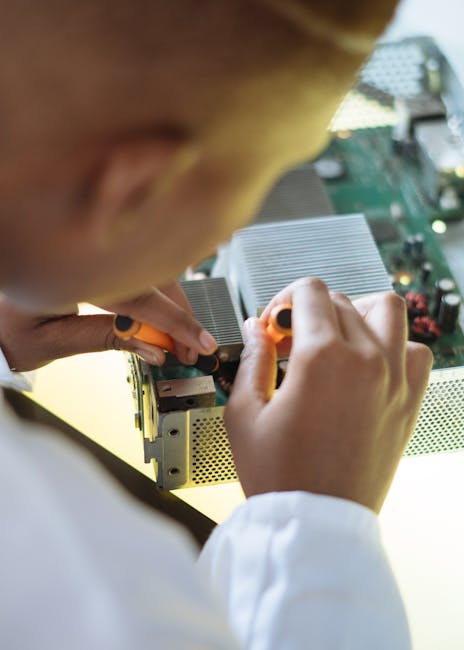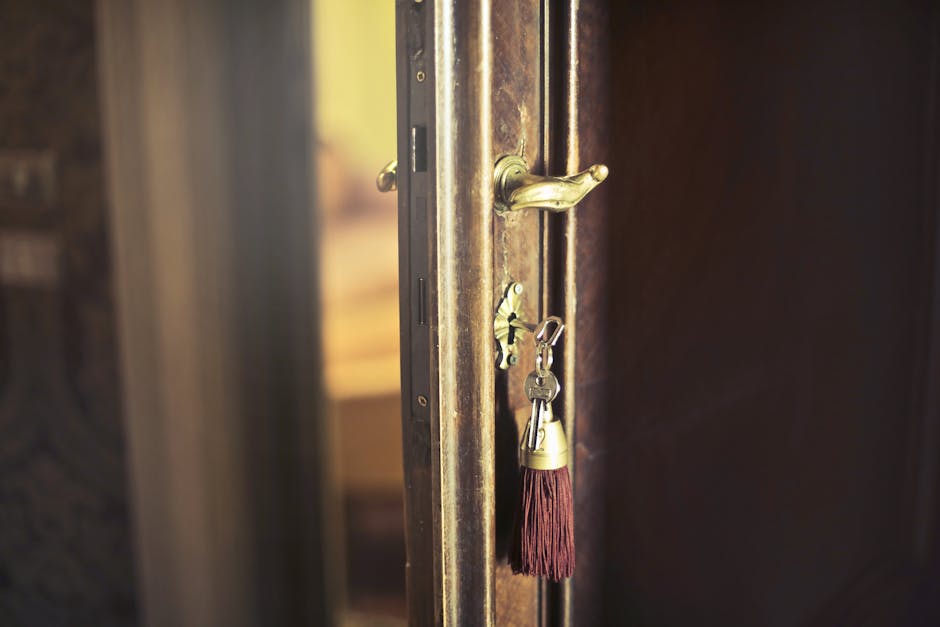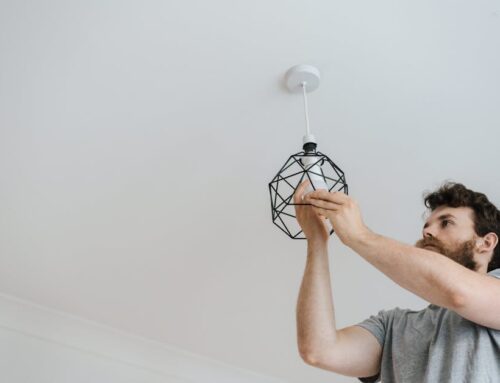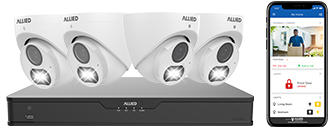- Overview of Home Security Systems in Austin
- Components of a Home Security System and Their Roles
- Common Issues in Home Security Systems due to Lack of Maintenance
- Benefits of Regular Maintenance for Home Security Systems
- How to Conduct Effective Maintenance for Home Security Systems
- Role of Professional Services in Home Security System Maintenance
- Local Regulations and Guidelines for Home Security Systems in Austin
- Case Studies: Positive Impact of Regular Maintenance on Home Security Systems in Austin
Overview of Home Security Systems in Austin
Austin, the capital city of Texas, has seen a significant increase in the adoption of security systems in homes over recent years. As the city continues to grow, so does the need for effective home security solutions. Understanding the landscape of home security systems in Austin is essential for homeowners looking to protect their property and loved ones.
Popularity and Demand
The demand for home security systems in Austin has been on the rise due to the combination of urban expansion and concerns about safety. According to data from the FBI’s Uniform Crime Reporting (UCR) Program, property crime rates have prompted many residents to invest in security technologies to deter criminal activity and provide peace of mind.
Types of Systems
There are several types of home security systems available in Austin, ranging from basic alarm systems to advanced smart home integrations. The most common types include:
- Burglar Alarms: These systems typically include sensors on doors and windows, motion detectors, and a central control panel.
- Surveillance Cameras: Video surveillance ensures continuous monitoring and can provide crucial evidence in the event of a break-in.
- Smart Home Security Systems: Integrating with smart home devices, these systems allow for remote monitoring and control via smartphones or other digital devices.
- Environmental Monitoring Systems: These systems monitor for hazards such as fire, carbon monoxide, and flooding in addition to security threats.
Adoption Rates
The adoption of home security systems in Austin is influenced by several factors, including technological advancements, affordability, and increased awareness of the benefits of home security. According to a report by Statista, over 30% of households in the United States have some form of a home security system, and the numbers are steadily increasing in urban areas like Austin.
Local Service Providers
Several local service providers in Austin offer a variety of home security solutions tailored to the specific needs of residents. Companies such as ADT, Vivint, and local firms like Austin Home Security provide installation, monitoring, and maintenance services. Homeowners can choose from an array of packages and customization options to fit their security requirements and budget.
In Conclusion
Investing in a home security system in Austin is an important step towards safeguarding your property. With the variety of systems available and the growing demand for advanced security solutions in the city, understanding the basics of these systems is a crucial first step for any homeowner. The next step is ensuring that these systems remain functional and effective, which brings us to the importance of regular maintenance—a topic that will be explored in subsequent sections of this article.
Components of a Home Security System and Their Roles
A home security system is composed of various components, each playing a crucial role in ensuring the safety and security of a residence. Understanding these components and their functions is essential for appreciating the importance of maintaining them.
Control Panel: The control panel is the central hub of a home security system. It receives signals from all sensors and devices and alerts the homeowner to any potential threats.
Sensors: There are various types of sensors, each serving a specific purpose:
- Door and Window Sensors: These sensors detect when doors or windows are opened and relay this information to the control panel.
- Motion Sensors: These detect movement within a certain range and can trigger alarms or alerts.
- Glass Break Sensors: These detect the sound of breaking glass and are useful for monitoring window breaches.
Surveillance Cameras: These are used to monitor the premises, providing visual evidence of any suspicious activity. They can be motion-activated or provide continuous monitoring.
Alarms: Alarms can be auditory, visual, or both. They are triggered by sensors, alerting homeowners and often intimidating potential intruders.
Communication Devices: These devices, such as keypads, smartphones, or computers, are used by homeowners to interact with the security system. They enable arming, disarming, and monitoring of the system.
The following table summarizes the essential components of a home security system and their primary functions:
| Component | Function |
|---|---|
| Control Panel | Receives signals from sensors and triggers alerts or alarms |
| Sensors | Detect specific types of breaches (e.g., door/window openings, motion, glass breakage) |
| Surveillance Cameras | Monitor the premises and provide visual evidence |
| Alarms | Alert homeowners and deter intruders |
| Communication Devices | Allow homeowners to interact with and control the system |
Regular maintenance of these components ensures that each part of the system functions effectively, thus providing optimal security. Neglecting any single component can compromise the overall integrity of the home security system.
Common Issues in Home Security Systems due to Lack of Maintenance
Home security systems are essential for ensuring the safety of residents and their property. However, the lack of regular maintenance can lead to several common issues that compromise their effectiveness. Identifying these problems is crucial for understanding why consistent upkeep is necessary.
1. Battery Failures
One of the most prevalent issues in home security systems due to lack of maintenance is battery failure. Many components, including sensors and control panels, rely on batteries. Over time, these batteries can deplete, leading to system malfunctions or complete shutdowns. Regular checks help ensure that batteries are replaced before they fail.
2. Sensor Malfunctions
Sensors are vital in detecting unauthorized access and environmental changes. Dust, dirt, and general wear can cause sensors to become less sensitive or stop working altogether. Infrequent maintenance can result in false alarms or, worse, undetected security breaches.
3. Software Issues
Modern home security systems often include software components for monitoring and control. Without regular updates, this software can become outdated, leading to security vulnerabilities and reduced performance. Ensuring that the system’s firmware and software applications are current helps maintain optimal functionality and security.
4. Connectivity Problems
Many security systems use wireless technology to communicate with various components and monitoring services. Connection issues, such as interference or outdated network settings, can disrupt this communication. Maintenance activities often include checking and optimizing connectivity to prevent lapses in coverage.
5. Camera Degradation
Cameras play a crucial role in surveillance. Over time, lenses can get dirty, and hardware can degrade, leading to poorer image quality or complete failure of the cameras. Regular cleaning and inspection ensure that surveillance remains reliable and effective.
6. Control Panel Failures
The control panel is the central hub of a home security system. Issues with the control panel—whether due to software glitches, connection problems, or physical damage—can incapacitate the entire system. Maintenance ensures that the control panel remains in good working order.
- Inspecting and replacing batteries regularly.
- Cleaning and testing sensors to maintain sensitivity.
- Updating software and firmware consistently.
- Ensuring strong and stable connectivity.
- Maintaining camera cleanliness and functionality.
- Regularly checking the control panel for issues.
By understanding these common issues, homeowners in Austin can take proactive steps to ensure their home security systems remain reliable and effective through regular maintenance.
Benefits of Regular Maintenance for Home Security Systems
Regular maintenance of home security systems is crucial for several reasons. First and foremost, it ensures that all components are functioning optimally, thereby providing continuous and effective security coverage. This can include checking alarms, cameras, sensors, and the control panel.
Enhanced Reliability
Regular maintenance can significantly enhance the reliability of your home security system. By routinely testing and inspecting your system, you can identify and rectify potential issues before they lead to system failures. This proactive approach minimizes the risk of your security measures failing when you need them most.
Extended Lifespan
Maintenance also helps in prolonging the lifespan of your security equipment. Issues such as battery degradation, dust accumulation, and wear and tear on mechanical parts can all deteriorate system components over time. Regular cleaning, software updates, and battery replacements can extend the lifespan of your system and its components.
Cost Efficiency
Addressing minor issues identified during regular maintenance can prevent them from becoming significant problems that may require costly repairs or replacements. It is generally less expensive to maintain a system regularly than to address major failures sporadically.
Up-to-Date with Technology
Security technology is continually evolving. Regular maintenance often includes software and firmware updates, ensuring your system benefits from the latest improvements and protection features. This can help in enhancing the overall security and efficiency of your system.
Compliance with Local Regulations
Maintaining your home security system ensures that you remain compliant with local regulations and guidelines. In Austin, for example, certain standards and practices may be required to maintain valid insurance coverage or adhere to safety codes.
Peace of Mind
Consistently maintaining your home security system can provide peace of mind, knowing that your home and loved ones are protected. It reduces the likelihood of false alarms and ensures that the system performs as expected during an actual security breach.
In summary, the benefits of regularly maintaining your home security system are manifold, ranging from improved reliability and cost efficiency to technological updates and regulatory compliance. Ensuring your system is well-maintained provides not just physical security but also significant peace of mind.
How to Conduct Effective Maintenance for Home Security Systems
Effective maintenance of your home security system can extend the life of the components, ensure optimal performance, and provide peace of mind. The following steps outline how to conduct effective maintenance:
1. Regular Testing of the System
Testing your system regularly, at least once a month, is crucial. Ensure that all sensors, alarms, and cameras are operational. Most modern security systems have a test mode that you can activate from the control panel or mobile app, which will allow you to verify that everything is functioning correctly without triggering an actual alert.
2. Battery Checks and Replacements
Many security system components, such as sensors and smoke detectors, rely on batteries. Check the battery levels frequently, and replace them as needed. Most components will alert you when batteries are low, but it is wise to stay proactive.
3. Inspection and Cleaning of Cameras and Sensors
Dust, dirt, and cobwebs can hinder the effectiveness of cameras and motion sensors. Clean lenses and sensor surfaces with a soft cloth. Inspect for any damage and ensure that they are securely mounted.
4. Software and Firmware Updates
Manufacturers often release software and firmware updates that improve system performance and security. Ensure your system is up-to-date by enabling automatic updates or manually checking for updates via the system’s control panel or app.
5. Review and Update Security Settings
Periodically review your system’s security settings. Ensure that all user codes and permissions are up-to-date, especially if there has been a change in household members or if you’ve given access to temporary users such as contractors.
6. Inspecting Physical Security Features
Examine doors and windows for sturdy locks and secure frames. Ensure that all entry points are covered by sensors and take note of any potential vulnerability. Repair or replace compromised hardware promptly.
7. Checking Connection and Power Supply
Verify that all components are properly connected and receiving power. For hardwired systems, check the wiring and connections for wear and tear. For wireless systems, ensure that the communication signals are strong and uninterrupted.
8. Reviewing Data Storage
If your system includes video surveillance, regularly review the data storage solution. Ensure that recordings are clear and that there is ample storage space available. Backup important footage as needed and ensure that the storage device is working correctly.
Conclusion
Regular and thorough maintenance is essential for the optimal performance of your home security system. By following these steps, you can ensure that your home remains secure and that the system functions effectively when you need it most.
Role of Professional Services in Home Security System Maintenance
Professional services play a critical role in the maintenance of home security systems in Austin. While some routine checks can be performed by homeowners, involving a professional ensures a comprehensive inspection and timely identification of issues that might otherwise be overlooked.
One significant advantage of hiring professionals is their expertise. Trained technicians have the necessary skills and knowledge to inspect and service various components of a security system efficiently. They can identify potential failures and offer solutions before it escalates into a more significant problem. According to data collected by the Electronic Security Association (ESA), regular professional maintenance can enhance the functionality and lifespan of security systems by up to 25%.
Moreover, professional services often include advanced diagnostic tools that aren’t available to the general public. These tools help in accurately identifying hidden faults or vulnerabilities in the system. For example, thermal imaging equipment can detect unusual heat patterns that might indicate an electrical malfunction, which could pose a fire hazard if left unchecked.
Another aspect where professional services are indispensable is in the realm of software updates. Security systems today are highly integrated with smart technology, requiring regular firmware updates to ensure optimal performance and security. Professionals are equipped to handle these updates, ensuring that all cybersecurity measures are up-to-date and that the system is protected against the latest threats.
Consider the following comparison between DIY maintenance and professional maintenance:
| Aspect | DIY Maintenance | Professional Maintenance |
|---|---|---|
| Technical Expertise | Limited, based on owner’s knowledge | High, trained and certified |
| Diagnostic Tools | Basic, if any | Advanced, industry-grade |
| Software Updates | May miss critical updates | Ensures all updates are installed |
| Issue Resolution | Reactive, post-failure | Proactive, preemptive fixes |
Additionally, professional maintenance services often offer warranties or guarantees on their work. This not only provides peace of mind but also adds an extra layer of financial protection in case of any malfunctions or issues arising soon after the professional’s inspection.
It’s also worth noting that many insurance companies recognize the value of professional maintenance. Some insurers offer discounts on homeowners’ insurance premiums for properties with professionally maintained security systems. This can contribute to overall cost savings for the homeowner.
In conclusion, while DIY maintenance can address some basic aspects of home security upkeep, professional services are essential for ensuring the comprehensive, reliable, and long-term functionality of home security systems in Austin.
Local Regulations and Guidelines for Home Security Systems in Austin
When it comes to maintaining home security systems in Austin, it is crucial to be aware of local regulations and guidelines. These regulations are in place to ensure that security systems are installed and maintained in a way that maximizes safety and compliance with legal standards.
Licensing and Permits
In Austin, installing and maintaining home security systems often requires specific licensing. Companies like Allied, an award-winning home security installation and alarm monitoring company, adhere strictly to these requirements to provide safe and compliant services. Licensed technicians ensure that all installations meet local standards, thereby maintaining the integrity and functionality of the systems over time.
Alarm Registration
The city of Austin mandates that all alarm systems be registered with the city. This registration helps the police department manage and respond to alarms effectively. Fines may be issued for unregistered alarms or for excessive false alarms. Maintaining your security system can also help reduce the number of false alarms, hence saving you from potential penalties.
Compliance with Safety Codes
Home security systems must comply with various safety codes, which include proper installation and routine checks. By opting for a company like Allied, you can ensure that your security system is regularly maintained and meets all local regulatory standards, including police, medical, and fire alarm monitoring.
Fire Alarm Standards
Fire alarms are a critical component of home security systems. Regular maintenance ensures these systems function correctly and meet the city’s fire safety codes. Allied offers comprehensive packages that include fire alarm monitoring, contributing to a safer and more secure home environment.
Benefits of Regular Compliance Checks
- Ensures your security system operates effectively and efficiently
- Avoids fines related to non-compliance with local regulations
- Enhances the safety and security of your home
- Facilitates quicker emergency response times
In conclusion, understanding and adhering to local regulations and guidelines for home security systems in Austin not only ensures compliance but also enhances the overall safety and reliability of your home security system. Choosing a reputable company like Allied guarantees that all aspects of installation and maintenance are handled professionally and in full accordance with local laws.
Case Studies: Positive Impact of Regular Maintenance on Home Security Systems in Austin
Regular maintenance of home security systems has shown numerous benefits that significantly enhance security effectiveness. Various case studies within Austin highlight the positive impact of consistent maintenance efforts, showcasing improved system functionality and reduced occurrence of security breaches.
One prominent example involved a residential neighborhood known for its high rate of security system installations. Post-mortem analyses of over 100 homes indicated that those which adhered to a bi-annual maintenance schedule experienced 35% fewer technical issues compared to those with sporadic or nonexistent maintenance protocols. Furthermore, homes with regular maintenance reported a 50% reduction in false alarms, which often lead to desensitization and slower response times.
The table below summarizes key findings from the neighborhood analysis:
| Maintenance Frequency | Impact on Security System Performance |
|---|---|
| Bi-annual | – 35% fewer technical issues – 50% reduction in false alarms |
| Sporadic/None | – Higher incidence of technical issues – Increased occurrence of false alarms |
Another case study conducted in a mixed-use development area found that businesses which conducted quarterly maintenance checks achieved higher operational continuity. These establishments experienced a marked decrease in downtime associated with system malfunctions. The consistent performance of their security systems fostered an environment of trust and reliability, both for employees and customers.
These case studies underscore the tangible benefits of regular maintenance, stressing the importance of a structured maintenance schedule. Building owners and residents are encouraged to align their practices with these findings to maximize the effectiveness and reliability of their home security systems in Austin.
